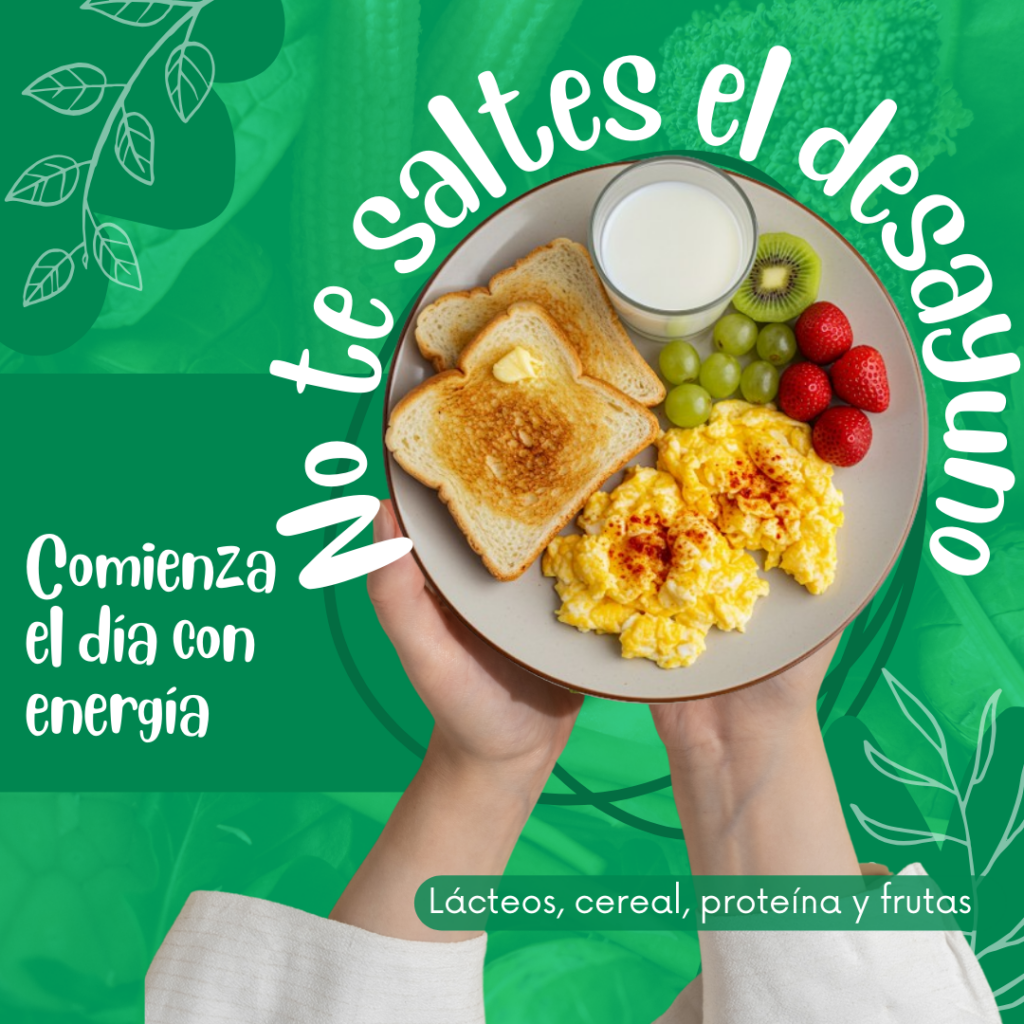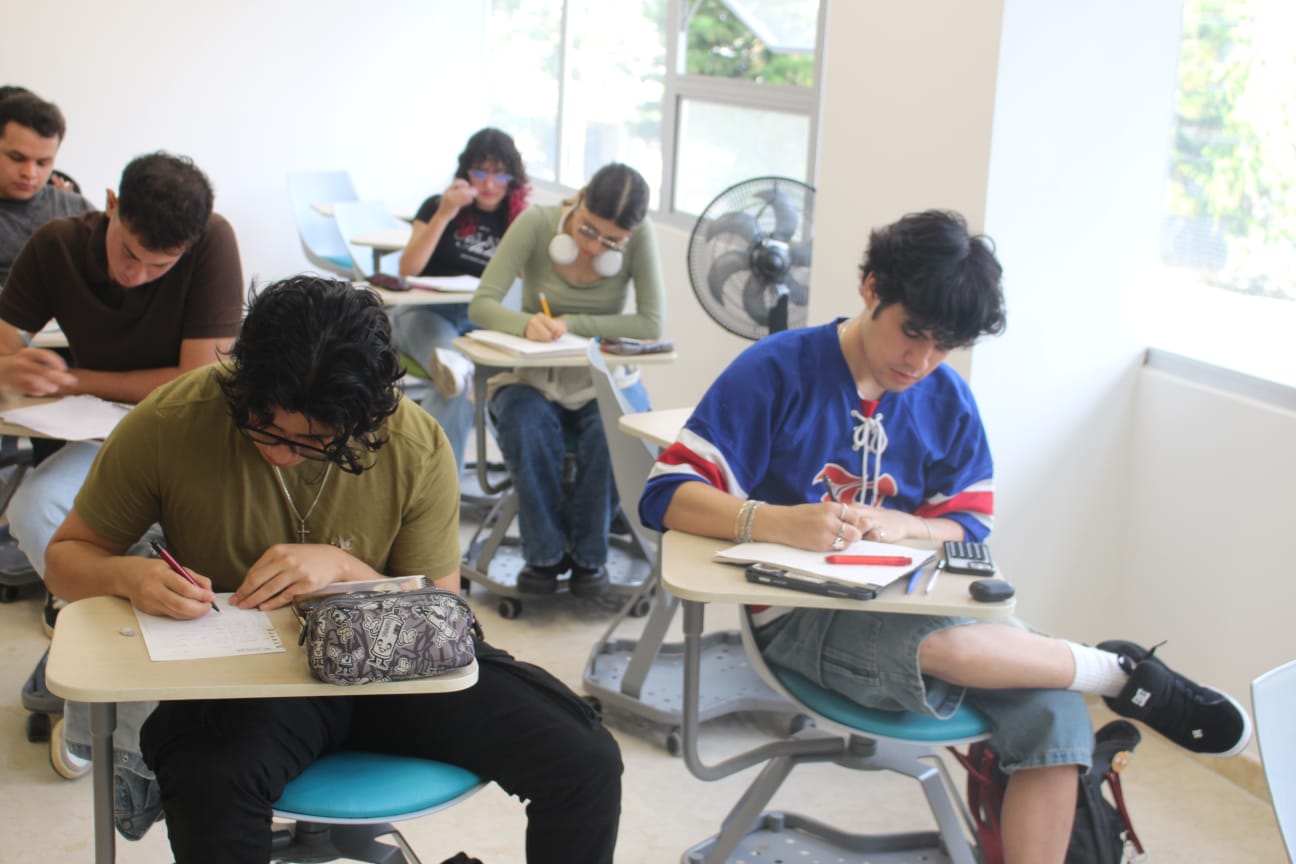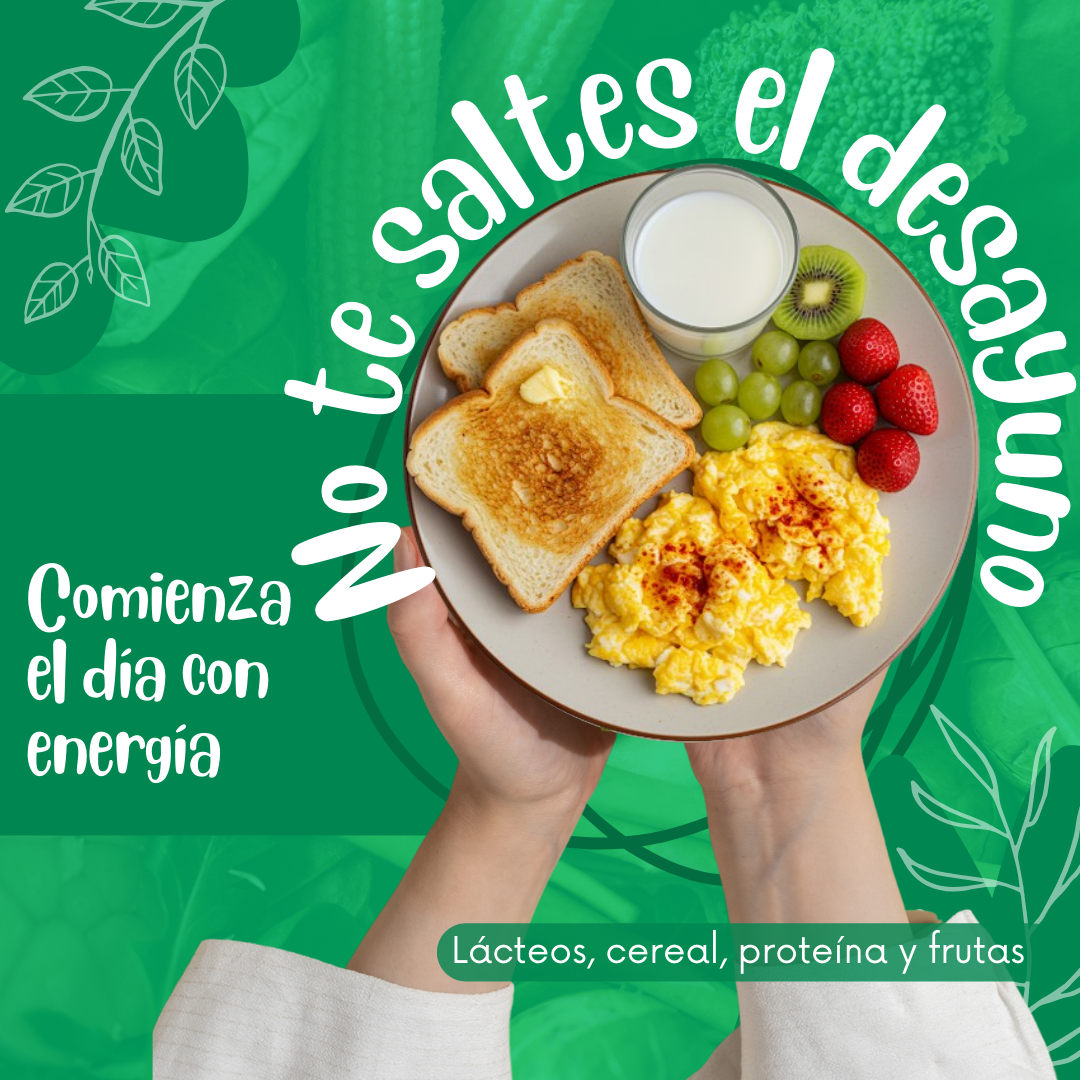
The Universidad Industrial de Santander (UIS) begins a new academic and work year. To face it with energy and well-being, nutrition plays a fundamental role. Erika Sirley Prada Rodríguez, nutritionist of Student Welfare, shares key recommendations to acquire and maintain healthy habits, highlighting the importance of not skipping breakfast.
Back to the routine without guilt
Resuming activities after the vacations can be a challenge, especially when it comes to food, since the end-of-year festivities are usually filled with abundant and delicious dishes. However, Prada Rodriguez invites the university community to avoid unnecessary guilt and instead focus on adopting healthy habits.
“The holidays should be enjoyed, and that includes the food. It was enjoyed and shared as a family, and that is invaluable. Now, the important thing is to take it easy and change the mentality. To do this, it is key to include fruits and vegetables in the diet, preferably five servings a day, eaten whole and not in juices, soups or creams. It is also recommended to increase protein intake, do physical activity and stay hydrated with at least two liters of water a day,” says the expert.
Don’t skip breakfast
One of the main mistakes when returning to the university or work routine is skipping breakfast, which can have negative health consequences.
“It is very common that young people who start their college life do not give importance to breakfast, when in fact it is a fundamental meal that provides the necessary energy for the day. In addition, many are still in the growth and development stage, so they need a good supply of nutrients. Skipping breakfast can lead to weight gain, especially accumulation of abdominal fat, in addition to causing anxiety and constant hunger,” warns the nutritionist.
What should a healthy breakfast be like?
The professional emphasizes the importance of choosing nutritious foods and avoiding ultra-processed products with high sugar content, which are often sold as healthy options but can actually harm well-being.
“A balanced breakfast should include a dairy drink, such as milk, oatmeal, yogurt or chocolate, preferably natural and with little or no added sugar. In the case of oatmeal, it is better to prepare it at home instead of opting for commercial versions. It is also important to incorporate cereals, such as arepa or bread, preferably whole grain and with seeds. As for proteins, it is recommended to avoid sausages and opt for healthier sources. In addition, it should always include fruits and vegetables, without additives such as condensed milk or cream,” explains Prada Rodríguez.
Foods to avoid at breakfast
Finally, the specialist warns about unhealthy options that are usually consumed in the morning.
“Many students choose to buy the famous ‘toxicombo’ at the entrance of the university, consisting of an empanada and a juice that, rather than juice, is water with dyes. While this is not to demonize fried foods, there are healthier alternatives, such as empanadas or cheese sticks baked at home. In addition, food sold on the street may be of dubious origin and increase the risk of gastrointestinal diseases, such as diarrhea”, concludes the nutritionist.





